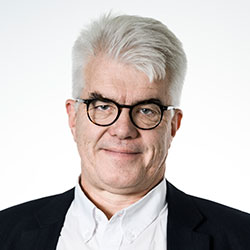Survey: KTH among Sweden's most internationalised universities

KTH is one of Sweden’s most international universities. This is confirmed by the annual survey by the Swedish Foundation for International Cooperation in Research and Higher Education, STINT.

“Naturally, this is good news," says Stefan Östlund, KTH Vice President for Global Relations. KTHhas long seen the benefits of international cooperation and has a faculty that has a great interest in cooperation within both research and education.”
International co-publications, student exchanges, international doctoral students, degree programmes in English, the international academic experiences of the faculty and managers, are aspects that are measured and should reflect the international feel of the universities.
What are KTH’s biggest strengths when it comes to internationalisation?
“We are a reliable international partner and have been building good relationships with leading universities around the world for many years, within both research, education and at management level. Together, we have built a KTH with a very good international reputation. This attracts researchers and also creates the foundations for successful international student recruitment."
The index, which is based on 2018, shows that KTH, together with Chalmers and Stockholm School of Economics, are best in class out of the 28 universities included in the index.
What can we say at this moment in time about what the consequences will be for the internationalisation of KTH and for universities all round the world?
“A lot of things have been put on ice, but exchanges and partnerships have not come to a complete stop and are continuing online to a certain extent, many of our international students are still studying with us, either here in Stockholm, or after going back to their home university. At KTH, the plan is to offer campus education in the main again this autumn and we hope that the international students that we have accepted will be able to come here. One big and uncertain issue is whether anyone can travel in and out of Sweden (and other countries) and how visas will be managed.”
When do you think the international research and education community will be back on its feet?
“I think recovery will begin as soon as it is possible to start travelling again.
"Hopefully, we will feel things are starting to get back to normal again in spring 2021. By spring 2022 when KTH is due to host the Times Higher World Summit on Innovation and Impact, we are bound to be back to something that feels like normal."
Jill Klackenberg
